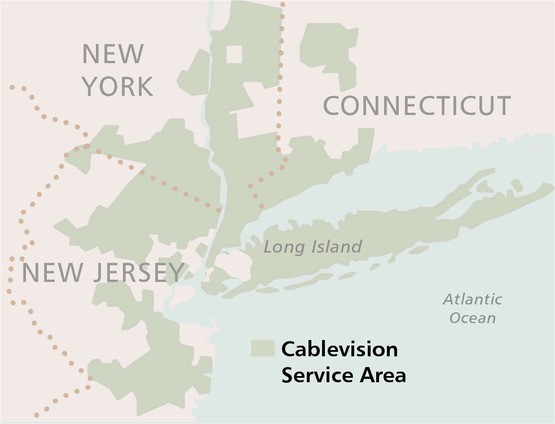Time Warner Cable attached their new rate schedule to my November cable bill which arrived in the mail last week. It’s the second major rate increase in western New York this year, and it means customers who just want to watch standard basic cable television will now pay $80.50 a month to do so. We’re a long, LONG way from the $20 cable TV package the industry used to advertise as “less expensive than a cup of coffee a day.” This is Starbucks’ coffee pricing, with no end in sight.
Time Warner Cable’s Triple-Play package of phone, Internet, and television service will now run $160.49 a month here in Rochester. It wasn’t too long ago that a bill that size was reserved for the gas and electric company, or perhaps for a used car payment. That’s before taxes, franchise fees, and other pad-ons, too. Need that extra set top box? Add another $7 a month each with remote control. Want to speed up your broadband? $10 a month for that. HBO? Time Warner Cable’s premium channel-pricing completely ignores today’s economic and marketplace (Netflix/Redbox) realities.
The cable company does have competition in the television business. In the same day’s mail was the latest offer from DirecTV, which has nearly as many sneaky extra fees as local phone company Frontier Communications. That $24.99 a month “amazing deal” starts to snowball as you build a package, and it also means a satellite dish on your roof, which some people just don’t want.
Assuming you stick with the cable company’s triple play package, the sobering truth is that doing business with Time Warner at their everyday-high-pricing will cost you at least $1,920 a year. But you don’t always have to pay them the asking price.
So with rate increase notice in hand, what can you do?
- Call them up and tell them the relationship is over unless changes are made. Good things come to those who wait for the other side of the relationship to start sacrificing for a change. You’ve coped with rate hikes for years and cable companies keep shoveling more channels you never watch and then raise rates because of “increased programming costs.” This time, let the cable company give a little. Call and tell them you want to disconnect your service two weeks from today. A retention specialist will attempt to negotiate with you (starting with efforts to pare down your package, leaving you still paying regular price for fewer services). Be non-committal, because better deals will start to arrive by phone as early as a few hours after telling them you’re leaving. (But you have to answer those unfamiliar Caller-ID calls to hear about them.) The worst that will happen is you don’t win a significantly better deal. You still have two weeks to rescind the cancel request with no interruption in service and at least get something for your efforts. Consolation prizes to sweeten a mediocre retention deal: free sample of premium channels, a free Turbo-class upgrade for Road Runner, and/or a break on DVR service.
- Compare prices. If you live in an area with telephone company-delivered TV, offer to stay with the cable company if they will match the new customer offers you are probably already getting pelted with in your mailbox. Most will. There are customers who literally bounce back and forth between AT&T/Verizon and Comcast/Time Warner Cable year after year just to keep the $89-99 triple-play promotional price that effectively never expires. Getting your existing provider to match it saves you and your provider the time and hassle of switching.
- Demand a new customer price. Do a Google search for “Time Warner Cable deals” (or for your respective cable company) and at least a dozen offers will appear, mostly from third-party, authorized resellers. Double-play offers for broadband and cable-TV often range between $75-85. A triple play offer which adds phone service is usually just a few dollars more. Some resellers pitch combo offers that deliver a discounted rate and a substantial rebate ($150), like the one below:
| TURBO INTERNET, TV+HD, VOICE |
|
only $99.99/mo for 12 month |
Ask Time Warner to match the price of these offers (you likely won’t get the rebate, however). They certainly can come close on retention deals — in fact they will go as low as $85 a month for an annual triple play deal in some areas.
Some customers deal with intransigent retention agents by canceling service and quickly signing up as a new customer soon after. That is more of a hassle, and some areas require a waiting period before they’ll offer a new customer promotion again, but the usual trick around this is to sign up under a spouse’s name.
It pays to shop around and read the fine print carefully.
For example, in the deal above, I highlighted three important features — the $150 rebate, which is important for reasons I’ll explain in a moment, the free DVR service, and “standard installation.” In some cases, promotional offers for new customers do not include free installation or equipment, so it is always important to ask exactly what is included. The $150 rebate will help defray those expenses, but some competing deals omit the rebate and knock $10 off the $99 monthly price for the same bouquet of services and installation is free.
- Drop services you don’t need. Still paying for premium channels? Why? Also check your bill for extra mini-pay tiers for certain HD channels Time Warner Cable dropped a few years ago. You may still be paying $5 a month or more for channels like HDNet Time Warner replaced with the hardly-comparable RFD-TV. Some customers who signed up for a discounted promotional offer for Time Warner phone service are now paying upwards of $30 a month for the company’s regular-priced unlimited long distance plan. Consider switching to the $20 “local calling only” plan. You can make those long distance calls on your cell phone or Google Voice and save $120 a year.
Time Warner, like every other cable company, understands the word “cancel” very well. The best way to put an end to endless rate increases is to refuse to pay them and being willing to cut the cord until they get the message.


 Subscribe
Subscribe








